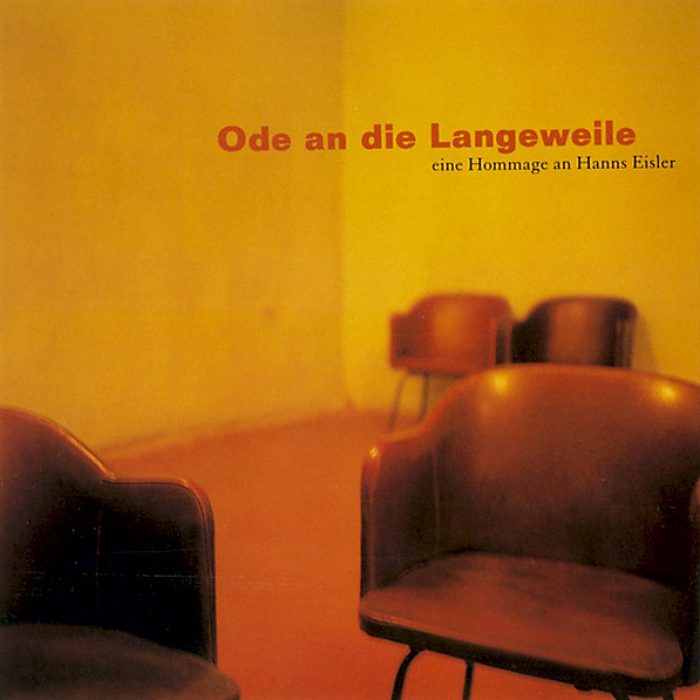Is Eisler obsolete? In the jubilee year 1998 this question is asked again and again, not with reference to his concert pieces which are in the tradition of the so called e-music of the 20th century, but with reference to his political pieces and fighting songs. Whereas Eisler’s music for concerts represents an interesting continuation of the European compositional tradition and therefore, in the context of a conventional concert programme, still seems to be fresh today. His ‘engaged’ music seems to be covered with dust, connected to its time in an unbearable way. One feels to be put back in the time of the ‘concrete heads’ and a politically motivated artistic actionism. This impression basically comes up because of the instrumentation (marching bands, worker’s choirs) and the way these political pieces were performed in the East and the West before the end of the cold war, they always seemed didactic, almost demagogic. Without this ‘instructions’ there are beautiful melodies and original ideas regarding the musical form as well as the relation between text and music. Eisler’s compositions merged with new musical styles that he couldn’t have known, enable the music to shine, relieved of the burden of ideology, refreshed with a lively disloyalty that does this music justice.
-5%

16,00 € 15,20 €
1 / Resolution / 5:18
2 / L’Automne Prussien (Die Buckower Kantate) / 2:25
3 / Der Blumengarten / 2:13
4 / Solidaritätslied / 4:37
5 / Nach Einem Sprichwort / 1:17
6 / Ode An Die Langeweile (Goethe Und Schubert Benutzend) / 1:59
7 / Ardens Sed Virens / 2:33
8 / Der Pflaumenbaum / 3:35
9 / The Five Toes / 2:19
10 / Children Rhyme / 0:47
11 / Und Endlich / 3:28
12 / Über Den Selbstmord / 3:01
13 / Von Der Freundlichkeit Der Welt / 1:33
14 / Mein Sohn, Was Immer Auch Aus Dir Werde / 2:27
15 / Falladah, Die Du Hangest! / 2:42
16 / Die Legende Von Der Entstehung Des Buches Taoteking / 7:03
17 / Oh, Endless Is The Misery / 2:04
Em stock


